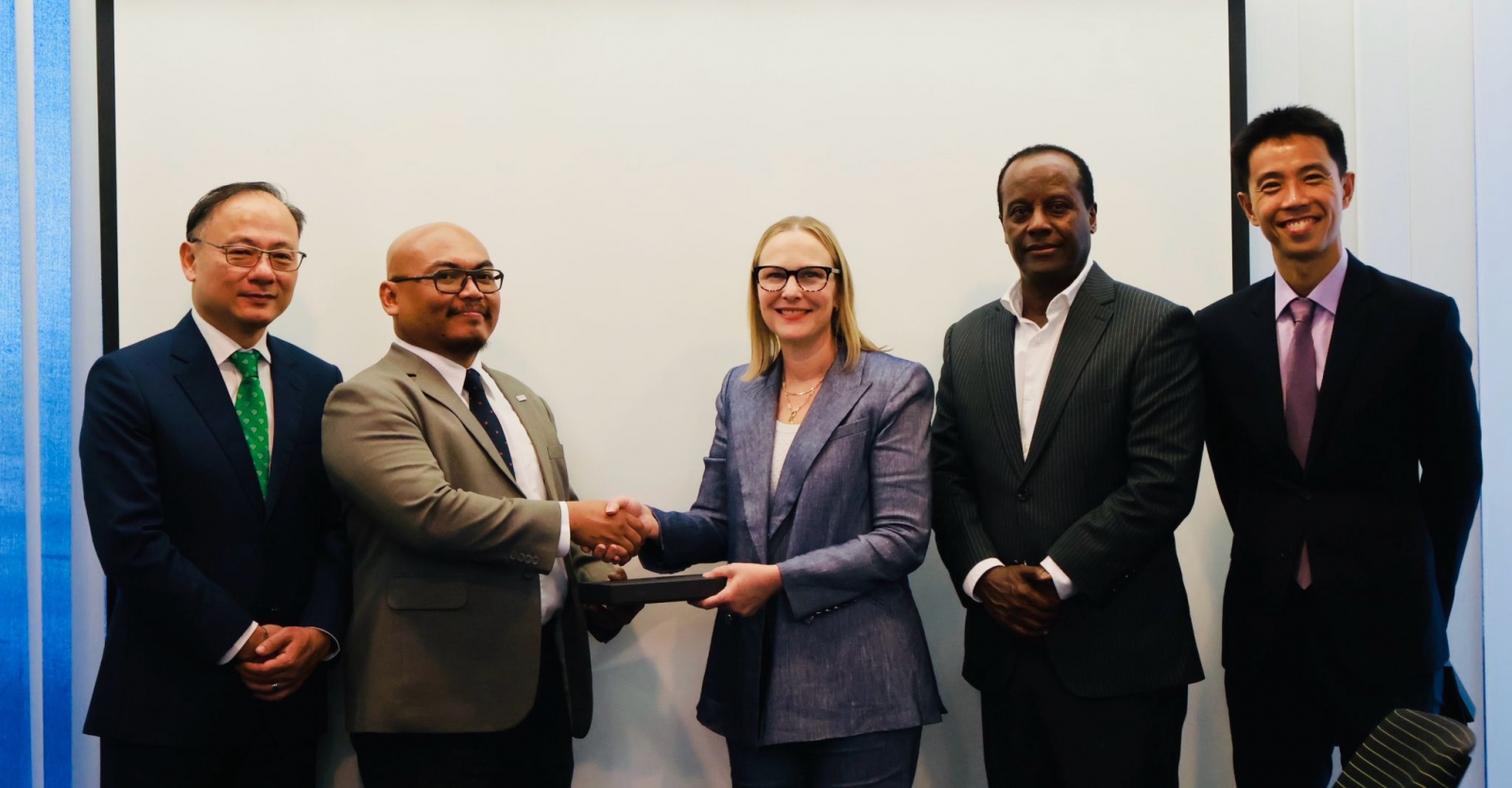.jpg)
Malaysia is a key base for Boeing in Asia-Pacific and now a testbed for new carbon removal solutions. (Photo: Boeing)
Boeing, the U.S. aerospace giant, is ramping up its decarbonization efforts. On Sept. 3, the company announced a partnership with carbon removal startup Equatic and the Sarawak state government in Malaysia to pilot ocean-based carbon removal technology.
At the same time, it signed a collaboration with i-CATS University College to train talent in sustainable aviation technologies.
Ocean carbon removal pilot in Sarawak
Malaysia has long been a key base for Boeing in the Asia-Pacific, producing commercial aircraft components. Now, Sarawak will also serve as a testbed for new carbon removal solutions. Under Sarawak’s clean energy plan, Boeing will deploy Equatic’s ocean carbon removal technology, designed to boost the ocean’s ability to absorb carbon dioxide while generating green hydrogen. The pilot facility is scheduled to begin operations in 2026.
According to the plan, the pilot plant will remove 365 tons of CO₂ annually, while producing 10 tons of green hydrogen and 80 tons of calcium carbonate. These three revenue-generating outputs would offset the project's cost of operations.
Erika Pearson, Vice President of Commercial Sales and Marketing for Boeing Southeast Asia and Oceania, said the company is committed to advancing sustainability goals for both customers and shareholders while supporting Sarawak’s energy transition and carbon removal initiatives.
Robert Hardin, CEO of Sarawak Economic Development Corporation Energy (SEDCE), added that the state is well-positioned to develop clean hydrogen and carbon removal technologies, maximizing the potential of Equatic’s innovations.

Erika Pearson, Vice President of Commercial Sales and Marketing for Boeing Southeast Asia and Oceania (center), signs a cooperation agreement with the Sarawak state government and U.S. ocean carbon removal startup Equatic. (Photo: Boeing)
Boeing eyes ASEAN SAF potential
Boeing’s collaboration with Equatic is not new—the company signed a pre-purchase option agreement in 2023 for removing 62,000 tons of carbon dioxide and getting 2,100 tons of carbon-negative hydrogen.
Beyond technology deployment, Boeing is also investing in talent development. Its partnership with i-CATS University College will create courses and executive certification programs in sustainable aviation, supply chain management, and maintenance, further advancing aviation sustainability.
Boeing also sees major potential for sustainable aviation fuel (SAF) development in ASEAN. In a report produced with the ASEAN Secretariat and the Canadian Trade and Investment Facility (CTIF), Boeing highlighted Malaysia, the Philippines, Indonesia, Thailand, and Vietnam as rich in SAF feedstock.
The report projects Indonesia, the Philippines, Thailand, and Vietnam could become net exporters of SAF by 2040, with Indonesia and Vietnam particularly competitive thanks to cost-efficient supply chains.
.jpg)


